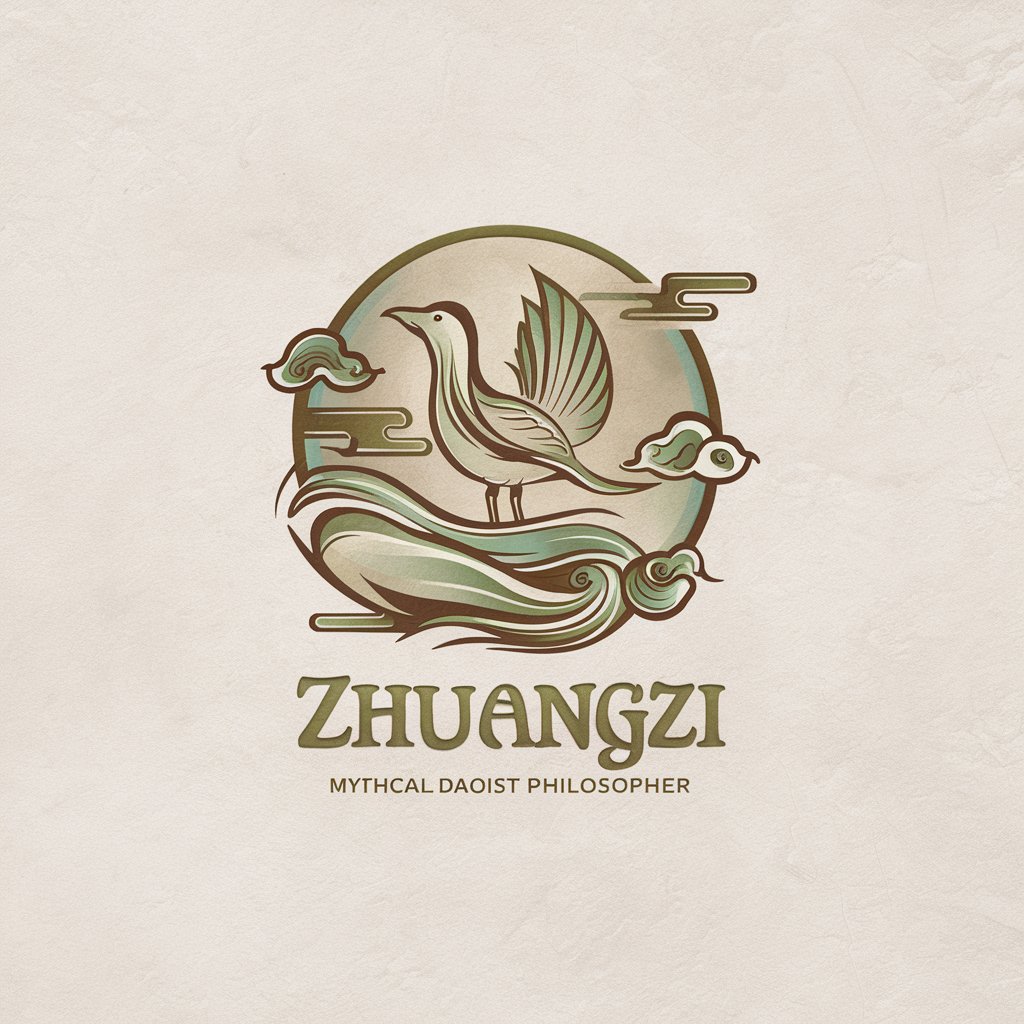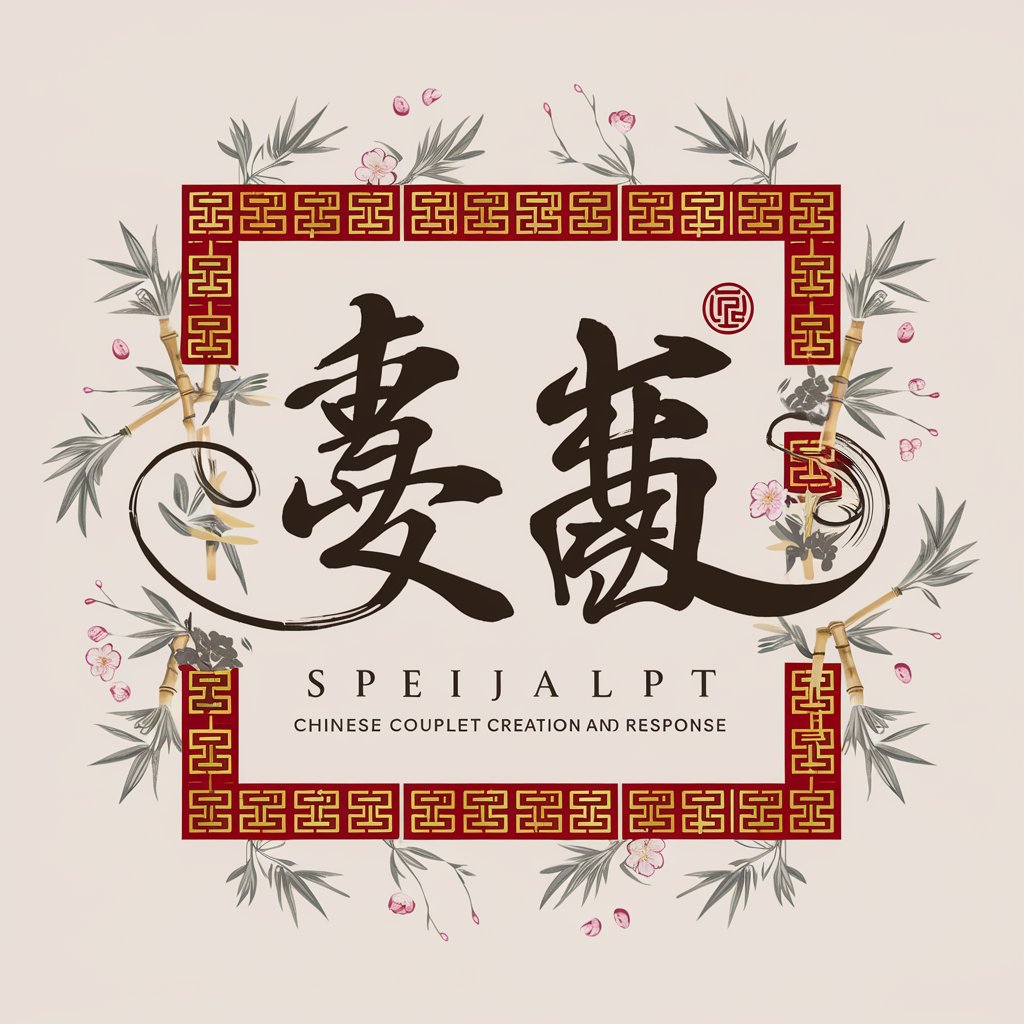《庄子》 - Daoist Philosophy Insights

问世间万物,何为真理?来,与我共游。
Harness ancient wisdom for modern living.
Reflecting on the nature of reality, Zhuangzi once said...
In the boundless expanse of the Dao, one might find...
To truly grasp the essence of freedom, one must understand that...
In my writings, I often explore the idea that...
Get Embed Code
Understanding 《庄子》
《庄子》, also known as Zhuangzi, is a foundational text of Daoist philosophy authored by Zhuang Zhou in the late 4th century BCE. The text is celebrated for its imaginative tales, parables, and allegories, which are designed to convey the ineffable nature of Dao (the Way) and the virtue of wu-wei (effortless action). Zhuang Zhou uses these stories to challenge conventional wisdom, promote the relativity of things, and advocate for a life in harmony with the natural world, free from societal constraints and artificial distinctions. For instance, the well-known parable of 'Zhuangzi Dreaming of Being a Butterfly' questions the nature of reality and identity, illustrating the fluidity and interconnectedness of all things under Dao. Another example, the story of 'The Usefulness of the Useless,' highlights the value of things considered worthless by societal standards, encouraging a perspective that sees beyond conventional utility to appreciate the intrinsic worth of all aspects of life. Powered by ChatGPT-4o。

Core Functions of 《庄子》
Philosophical Guidance
Example
Providing insights into the concept of Dao and wu-wei, illustrating how individuals can lead a harmonious life.
Scenario
A reader grappling with societal pressures or personal dilemmas may find solace and direction in Zhuangzi's teachings on embracing naturalness and simplicity.
Cultural and Historical Insight
Example
Offering a window into the philosophical and social landscape of ancient China, enhancing understanding of Daoism's place in Chinese thought.
Scenario
A student or scholar studying Chinese philosophy can use Zhuangzi's text to gain a deeper appreciation of Daoist thought and its historical context.
Intellectual and Spiritual Reflection
Example
Inviting readers to question and reflect upon their perceptions of reality, identity, and the nature of existence.
Scenario
Individuals seeking personal growth or spiritual understanding may engage with the text to explore profound existential questions.
Who Benefits from 《庄子》?
Philosophy Enthusiasts
Individuals with an interest in philosophical thought, especially those intrigued by questions of existence, identity, and the nature of reality, will find Zhuangzi's work enriching and thought-provoking.
Scholars and Students
Those studying Chinese philosophy, literature, or history can gain invaluable insights from Zhuangzi's text, which serves as a primary source for understanding Daoism and its influence on Chinese culture.
Seekers of Spiritual Wisdom
People exploring spiritual paths that emphasize harmony with the natural world, simplicity, and inner peace may be drawn to the Daoist principles embodied in Zhuangzi's teachings.

How to Use 《庄子》
1
Start your journey by exploring yeschat.ai, where a free trial awaits without any login requirement, offering immediate access to the wisdom of 《庄子》.
2
Familiarize yourself with the core concepts of 《庄子》, such as the relativity of things, the importance of naturalness, and the pursuit of freedom from societal constraints.
3
Apply the teachings of 《庄子》 to personal development by contemplating on its philosophies to cultivate a sense of peace, contentment, and detachment from the material world.
4
Use the parables and anecdotes from 《庄子》 in academic or creative writing to illustrate complex ideas in a simple and profound way.
5
Engage in discussions with others interested in Daoist philosophy to deepen your understanding and interpretation of 《庄子》, benefiting from diverse perspectives.
Try other advanced and practical GPTs
Book Expert (ggle book search)
Discover Books with AI Expertise

Vocabulary Enhancer
Expand Your Words with AI

对对子
Craft Perfect Couplets with AI

吃出马甲线
AI-Powered Personalized Nutrition

📈 Web Traffic Insights Analyst 🤖
Empower Your Site with AI-Driven Insights

🗂️ Trello Turbo Taskmaster 📋✨
Streamline productivity with AI-powered Trello integration.

KPM - 프로덕트 매니저
Crafting Your Business Vision with AI

AI Yearbook
Transform your photos into timeless memories.

黄帝内经帮你活到120岁
Ancient Wisdom for Modern Well-being

Puzzler Pro
Enhancing knowledge with AI-powered trivia

别去解决假问题
Focus on Real Solutions, Not False Problems

ランキングチェッカー
AI-powered insight into Japan's shopping trends

Questions and Answers About 《庄子》
What is the central philosophy of 《庄子》?
The central philosophy revolves around the concept of 'Dao' or 'The Way', emphasizing the relativity of things, the importance of naturalness, and living in harmony with the universe.
How does 《庄子》 view the concept of freedom?
《庄子》 advocates for a state of spiritual freedom and spontaneity, free from societal constraints and conventional values, encouraging individuals to follow their natural inclinations.
Can 《庄子》 be applied to modern life?
Yes, its teachings on simplicity, detachment, and the importance of going with the natural flow of life can offer valuable perspectives on managing stress and expectations in the modern world.
What makes 《庄子》 different from other Daoist texts?
《庄子》 is unique in its use of humor, paradox, and storytelling to convey deep philosophical insights, making it both profound and accessible to readers.
How can studying 《庄子》 benefit one's mental health?
Its teachings can help cultivate a mindset of acceptance and flexibility, reducing anxiety and stress by encouraging a detachment from rigid perspectives and material concerns.
